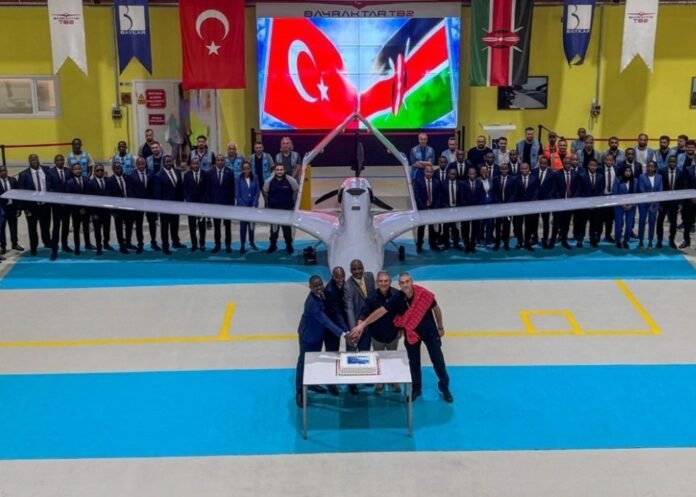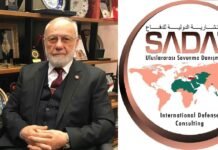Turkey is undermining Africa’s fragile stability through its weapons exports and deployment of private military contractors, the US-based Foreign Policy magazine reported on Tuesday.
Ankara’s growing influence in Africa, initially welcomed for expanding diplomatic ties, trade and mediation roles, has taken a troubling turn. Its surge in arms sales, often violating international sanctions, threatens regional stability and civilian safety, as Turkish-made weapons increasingly end up in the hands of abusive or unaccountable actors, the report says.
At the center of Turkey’s military exports are combat drones. With 18 African countries now in possession of Turkish drones, Turkey was the third-largest arms supplier in West Africa in 2024, according to data from the Stockholm International Peace Research Institute (SIPRI).
The Bayraktar TB2, manufactured by Turkish defense contractor Baykar, headed by the son-in-law of President Recep Tayyip Erdoğan, has become one of the most sought-after combat drones in Africa. Military officers from multiple countries praise Turkey’s fast, flexible and low-cost delivery, noting that Turkish drones are easy to operate and require minimal training.
However, Turkey’s growing military footprint in Africa is not limited to defense cooperation. It has also become a means for the Erdoğan government to target its critics living abroad. President Erdoğan has reportedly offered Turkish-made drones at an attractive price in exchange for the transfer of schools linked to faith-based Gülen movement and the abduction of its followers. A recent example came in October 2024, when Kenya forcibly returned four UN-protected Turkish refugees, in violation of the principle of nonrefoulement under international refugee law, just two months after purchasing the TB2. The United Nations expressed concern over the repatriation.
The report also identifies Turkish private military companies as another major destabilizing factor, highlighting the SADAT International Defense Consultancy, founded by retired general Adnan Tanrıverdi, a longtime adviser to Erdoğan. Operating in at least nine African countries, SADAT is described as the largest Turkish security contractor.
Foreign Policy noted that SADAT, guided by an openly Islamist worldview, has been implicated in rights abuses in African conflict zones through its recruitment of Syrian mercenaries. The report warns that these mercenaries’ past links to jihadist groups could contribute to the training of future extremists and further the spread of extremism across Africa.
The report focuses on Turkey’s controversial role in Sudan’s ongoing civil war, noting that Turkish made weapons have reached both sides of the conflict. While Turkey has supplied arms to the Sudanese Armed Forces (SAF), the rival Rapid Support Forces (RSF) has also obtained Turkish weapons, with reports suggesting that Turkish companies maintain contacts with the RSF. These parallel transactions have fueled violence, leading to increased civilian casualties and deepening humanitarian suffering.
Foreign Policy argues that the threat posed by Turkey’s activities is twofold: the unregulated sale of weapons to fragile or authoritarian regimes responsible for civilian atrocities, and Ankara’s inability to prevent their spread to rival factions and criminal networks. In several African states where coups have taken place, Turkish drones have reportedly changed hands between successive military juntas, further escalating the risk of instability and civilian harm.
It further warns that Turkish weapons trafficked from conflict zones are fueling violence across the Sahel and posing risks to its southern regions, where a fragile political situation and presence of numerous armed groups could spark future conflicts.
“Positive coverage of Turkey’s cultural, educational, and trade relationships should not obscure the danger of its military adventurism,” says the report. The Erdoğan administration’s policies go beyond profit or geopolitics, reflecting his ambition to position Turkey as a “vanguard Islamic power” across the Muslim world.
Foreign Policy concluded that “Turkey’s arms sales in Africa—driven by profit, prestige, and ideology—have fostered instability rather than security.”














